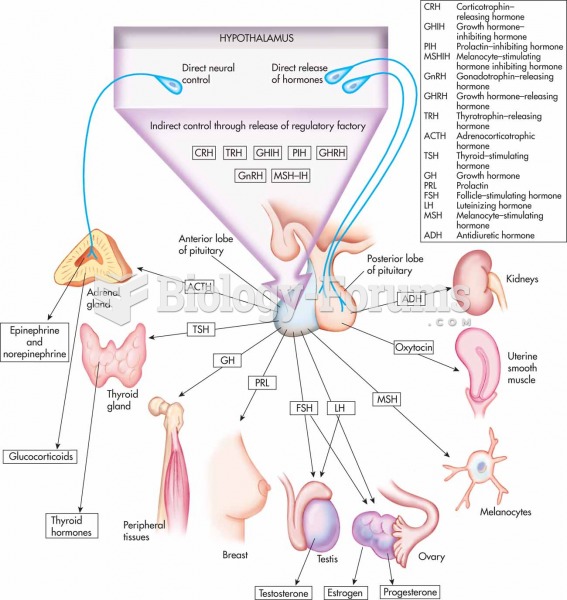|
|
|
During the twentieth century, a variant of the metric system was used in Russia and France in which the base unit of mass was the tonne. Instead of kilograms, this system used millitonnes (mt).
In 1886, William Bates reported on the discovery of a substance produced by the adrenal gland that turned out to be epinephrine (adrenaline). In 1904, this drug was first artificially synthesized by Friedrich Stolz.
The eye muscles are the most active muscles in the whole body. The external muscles that move the eyes are the strongest muscles in the human body for the job they have to do. They are 100 times more powerful than they need to be.
Nearly 31 million adults in America have a total cholesterol level that is more than 240 mg per dL.
About 80% of major fungal systemic infections are due to Candida albicans. Another form, Candida peritonitis, occurs most often in postoperative patients. A rare disease, Candida meningitis, may follow leukemia, kidney transplant, other immunosuppressed factors, or when suffering from Candida septicemia.
 The functional structure of the peripheral nervous system. (A) Afferent or sensory neurons carry sen
The functional structure of the peripheral nervous system. (A) Afferent or sensory neurons carry sen
 Everyday situations sometimes present opportunities for children to build information processing ...
Everyday situations sometimes present opportunities for children to build information processing ...





